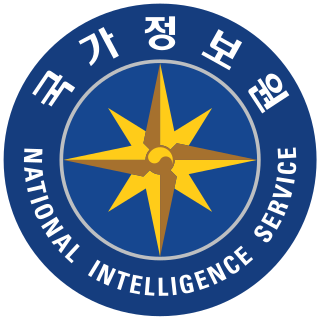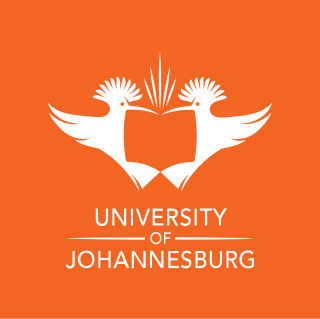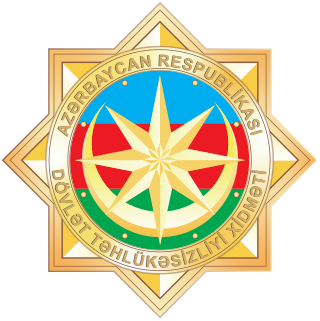
The United States Naval Criminal Investigative Service (NCIS) is the primary law enforcement agency of the U.S. Department of the Navy. Its primary function is to investigate criminal activities involving the Navy and Marine Corps, though its broad mandate includes national security, counterintelligence, counterterrorism, cyberwarfare, and the protection of U.S. naval assets worldwide. NCIS is the successor organization to the former Naval Investigative Service (NIS), which was established by the Office of Naval Intelligence after the Second World War.
The National Intelligence Agency (NIA) was the previous name of an intelligence agency of the South African government. Currently it is known as the Domestic Branch of the State Security Agency. It is responsible for domestic and counter-intelligence within the Republic of South Africa. The branch is run by a Director, who reports to the Director-General of the State Security Agency. The Director is also a member of the National Intelligence Co-Ordinating Committee (NICOC).
The South African Secret Service (SASS) was the previous name of a South African intelligence agency. Currently, it is known as the Foreign Branch of the State Security Agency. It is responsible for all non-military foreign intelligence and for counterintelligence within the Service itself. It is also responsible for gathering, correlating, evaluating and analysing this intelligence.

The National Intelligence Service is the chief intelligence agency of South Korea. The agency was officially established in 1961 as the Korean Central Intelligence Agency, during the rule of President Park Chung-hee's military Supreme Council for National Reconstruction, which displaced the Second Republic of Korea. The original duties of the KCIA were to supervise and coordinate both international and domestic intelligence activities and criminal investigations by all government intelligence agencies, including that of the military. The agency's broad powers allowed it to actively intervene in politics. Agents undergo years of training and checks before they are officially inducted and receive their first assignments.

The University of Johannesburg (UJ) is a public university located in Johannesburg, South Africa. The University of Johannesburg came into existence on 1 January 2005 as the result of a merger between the Rand Afrikaans University (RAU), the Technikon Witwatersrand (TWR) and the Soweto and East Rand campuses of Vista University. Prior to the merger, the Daveyton and Soweto campuses of the former Vista University had been incorporated into RAU. As a result of the merger of Rand Afrikaans University (RAU), it is common for alumni to refer to the university as RAU. The vice-chancellor and principal of UJ is Professor Tshilidzi Marwala who took office on 1 January 2018. Between 2005 and 2017, UJ's vice-chancellor and principal was Prof Ihron Lester Rensburg.

The Federal Law Enforcement Training Centers (FLETC) serves as an interagency law enforcement training body for 105 United States government federal law enforcement agencies. The stated mission of FLETC is to "...train those who protect our homeland". It also provides training to state, local, campus, tribal, and international law enforcement agencies. Through the Rural Policing Institute (RPI) and the Office of State and Local Training, it provides tuition-free and low-cost training to state, local, campus and tribal law enforcement agencies.
An overview of South African intelligence service decorations and medals, which form part of the South African honours system.

Bulacan State University is a public university in Bulacan province, Philippines. Its main campus is in Malolos.
The Turkish National Police Academy is a public institution of higher education in Ankara, Turkey dedicated to the training of police officers. It was founded in 1937 and has offered a four-year undergraduate program since 1984.
The State Security Council (SSC) was formed in South Africa in 1972 to advise the government on the country's national policy and strategy concerning security, its implementation and determining security priorities. Its role changed through the prime ministerships of John Vorster and PW Botha, being little used during the formers and during the latter's, controlling all aspects of South African public's lives by becoming the Cabinet. During those years he would implement a Total National Strategy, Total Counter-revolutionary Strategy and finally in the mid-eighties, established the National Security Management System (NSMS). After FW de Klerk's rise to the role of State President, the Cabinet would eventually regain control of the management of the country. After the 1994 elections a committee called National Intelligence Co-ordinating Committee was formed to advise the South African president on security and intelligence as well as its implementation.
The National Intelligence Service (NIS) is a defunct intelligence agency of the Republic of South Africa that replaced the older Bureau of State Security (BOSS) in 1980. Associated with the Apartheid era in South Africa, it was replaced on 1 January 1995 by the South African Secret Service and the National Intelligence Agency with the passage of the Intelligence Act (1994).
The Intelligence Services Act was legislation revamping the intelligence agencies of the Republic of South Africa, passed by the National Assembly on 2 December 1994. The legislation established new intelligence agencies, dismantling those used to enforced the Apartheid regime. New institutions were established under a system designed to respect and protect civil liberties, promote transparency and de-politicize South Africa's security agencies.
The State Security Agency is the department of the South African government with overall responsibility for civilian intelligence operations. It was created in October 2009 to incorporate the formerly separate National Intelligence Agency, South African Secret Service, South African National Academy of Intelligence, National Communications Centre and COMSEC.

The National Intelligence University (NIU) is a federally chartered research university in Bethesda, Maryland operated by and for the United States Intelligence Community (IC) as its staff college of higher learning in fields of study central to the profession of intelligence and national security. A small, highly selective non-residential university, NIU awards undergraduate and graduate degrees, a graduate certificate, and prestigious research fellowships to prepare personnel for critical positions in the IC and the broader national security enterprise. Since 1963, more than 80,000 military and civilian students have attended the university. Originally located at Defense Intelligence Agency headquarters at Joint Base Anacostia–Bolling in Washington, D.C., NIU's primary campus is now located just up the Potomac River at Intelligence Community Campus-Bethesda (ICC-B) with four additional locations around the world.

Multimedia University, abbreviated as MMU, is the oldest and first ever full-fledged private research university in Malaysia and a government-linked university as it is owned by Telekom Malaysia. It was founded in 1997, so it is considered a young medium university with a concentration in technology and multimedia disciplines. The university hosts ten faculties and Institute of Postgraduate Studies. Ministry of Education Malaysia classified this university as very competitive.

The University of Public Service is a higher educational institution in Budapest, Hungary. Established in 2012, it is one of the youngest universities in Central and Eastern Europe; however, its faculties as former independent colleges look back much earlier.

The State Security Service is the principle domestic intelligence agency and secret police of Azerbaijan, created out of the 2015 dissolution of the Ministry of National Security. The DTX was established by Presidential Decree 706 of December 14, 2015, issued by Ilham Aliyev. Headquartered in Baku, the agency has been led by Colonel General Ali Naghiyev since June 2019. It's foreign intelligence counterpart is the Foreign Intelligence Service.
Michael James Minaar Louw was a former Director-General of the South African National Intelligence Service (NIS) and after the 1994 South African elections, appointed as head of the new South African Secret Service. He played a key role as a representative of the South African government in the secret negotiations held between them and the ANC in exile and which brought about the unbanning of the latter in 1990 and the release of Nelson Mandela.
Mzwandile "Mzwai" Piliso was a South African politician and former anti-apartheid activist. He was a member of the National Executive Committee of the African National Congress (ANC) from 1962 to 1985 while the organisation was banned in South Africa and operated in exile. He is best known for his tenure as head of the National Intelligence and Security Department (NAT) of Umkhonto we Sizwe (MK), the ANC's armed wing, and briefly represented the ANC in the post-apartheid National Assembly after the 1994 elections.








